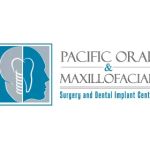Should You Choose Dental Implants Over Bridges or Dentures?
- Introduction to Dental Restoration Options
- What Are Dental Implants?
- What Are Dental Bridges?
- What Are Dentures?
- Pros and Cons of Each Option
- How to Decide Which Option Is Best for You
1. Introduction to Dental Restoration Options
When it comes to replacing missing teeth, there are several options available, but one of the most common questions patients ask is whether to opt for dental implants, bridges, or dentures. Each option has its own set of advantages and considerations, and the decision largely depends on the patient's specific needs, preferences, and the condition of their oral health. In this article, we'll take an in-depth look at each of these options to help you make an informed decision about the best course of action for restoring your smile.
2. What Are Dental Implants?
Dental implants are a permanent solution for missing teeth. They consist of a titanium post that is surgically placed into the jawbone, where it acts as a replacement root for the missing tooth. Once the implant has integrated with the bone, a crown is attached to the post to restore the function and appearance of the missing tooth.
The key advantage of dental implants is that they are a permanent solution. Implants feel and function like natural teeth, allowing you to speak, eat, and smile with confidence. Additionally, implants help to preserve bone density, which is often lost when a tooth is missing. However, the procedure requires a healthy jawbone, and the process of installing an implant can take several months.
Some real-world examples of people who’ve chosen implants include my friend Sarah, who struggled with loose dentures for years. After getting implants, she found that not only did they solve the discomfort she was experiencing, but they also improved her ability to chew and speak clearly.
3. What Are Dental Bridges?
Dental bridges are a less invasive option for replacing missing teeth compared to implants. A bridge consists of one or more artificial teeth (pontics) that are anchored by crowns on adjacent teeth. The artificial teeth fill the gap left by missing teeth, and the crowns are attached to healthy teeth on either side of the gap.
Bridges are a great option for patients who have one or more missing teeth but do not want to undergo a surgical procedure like dental implants. They offer a more affordable alternative to implants, and the process is relatively quick—typically completed in just two to three visits. However, the surrounding teeth must be healthy enough to support the crowns, and some enamel may need to be removed from these teeth.
While bridges are a solid option for many people, they do not stop bone loss in the jaw, which is a key advantage of implants. This can lead to further complications down the road, especially for younger patients.
4. What Are Dentures?
Dentures are removable appliances that replace missing teeth and surrounding tissue. They come in two main types: complete dentures (for patients who have lost all of their teeth) and partial dentures (for patients who still have some natural teeth remaining). Dentures are typically made of acrylic, but can also be made from metal or a combination of both materials.
The biggest benefit of dentures is that they are generally the most affordable option for replacing multiple missing teeth. They are a quick solution, and since they are removable, they are easy to clean. However, dentures may not always feel as secure as implants or bridges. They can slip or shift, especially if you are eating or speaking, which can lead to discomfort and embarrassment.
Additionally, dentures don’t prevent bone loss like dental implants do. This can result in a sunken appearance in the face over time. Despite these drawbacks, many people choose dentures because of their affordability and ease of use.
5. Pros and Cons of Each Option
Now that we've explored each of the three options—dental implants, bridges, and dentures—let's take a closer look at their pros and cons to help you make a decision:
- Dental Implants:
- Pros: Permanent solution, natural look and feel, helps preserve bone density
- Cons: Expensive, requires surgery, long healing time
- Dental Bridges:
- Pros: Less expensive than implants, quicker process, no surgery required
- Cons: May require reshaping surrounding teeth, doesn’t prevent bone loss
- Dentures:
- Pros: Affordable, easy to use, non-invasive
- Cons: Can shift, may cause discomfort, doesn’t prevent bone loss
6. How to Decide Which Option Is Best for You
The decision between dental implants, bridges, and dentures depends on several factors, including your budget, the health of your teeth and gums, and your long-term goals. If you are looking for a permanent and natural-looking solution, and you are prepared for a more involved procedure, dental implants may be the right choice for you. On the other hand, if you are looking for a quicker and less expensive option, a dental bridge might be a better fit. For those who need a temporary or more affordable solution, dentures can provide a solid answer.
As a dental professional, I always advise my patients to consider all the options carefully and discuss their personal needs and concerns with their dentist. It’s essential to find a solution that not only fits your budget but also gives you the confidence to smile and speak comfortably for years to come.
If you’re still unsure which option is right for you, Dentistry Toothtruth offers detailed consultations to help you explore your best options.







 Lakewood Dental Care4.0 (12 review)
Lakewood Dental Care4.0 (12 review) Stephanie Dental Group4.0 (250 review)
Stephanie Dental Group4.0 (250 review) Dean Street Dental5.0 (259 review)
Dean Street Dental5.0 (259 review) Dr. Wayne E. Turk, DMD5.0 (3 review)
Dr. Wayne E. Turk, DMD5.0 (3 review) Smile Central Dental4.0 (506 review)
Smile Central Dental4.0 (506 review) Pacific Oral & Maxillofacial Surgery and Dental Implant Center4.0 (66 review)
Pacific Oral & Maxillofacial Surgery and Dental Implant Center4.0 (66 review) The Importance of Oral Health Education During Pregnancy for a Healthy Pregnancy
The Importance of Oral Health Education During Pregnancy for a Healthy Pregnancy Best Tips for Brushing Your Teeth Properly for Healthy Gums: Essential Techniques for Oral Health
Best Tips for Brushing Your Teeth Properly for Healthy Gums: Essential Techniques for Oral Health Why Skipping Dental Checkups Can Lead to Bigger Oral Health Problems
Why Skipping Dental Checkups Can Lead to Bigger Oral Health Problems Advantages of Porcelain Dental Restorations
Advantages of Porcelain Dental Restorations How Can Diabetes Cause Tooth and Gum Problems? Preventing and Managing Oral Health Issues
How Can Diabetes Cause Tooth and Gum Problems? Preventing and Managing Oral Health Issues Healthy Habits for Promoting Good Oral Health and Hygiene: Tips for a Healthy Smile
Healthy Habits for Promoting Good Oral Health and Hygiene: Tips for a Healthy Smile